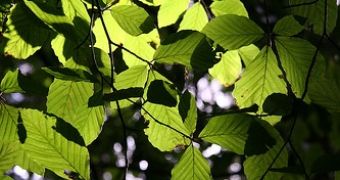Life in the rural areas of the African nation of Ghana is not as “independent” as one may think, as far as having everything you need around the house goes. In these regions, trees and forests are vital for people in forsaken villages who have been living in harmony with nature for several thousand years. One could say that it's the trees that keep them alive, as they are a source of protection, food, heat and leisure.
But sprawling urban development threatens to destroy this delicate balance, and is one of the main reasons why the Tree Aid charity now has numerous ongoing programs in the region designed to help people come to terms with the realities that lie ahead.
“We are looking at ways to promote sustainable agriculture and agroforestry. This will help ensure that the remaining trees are well looked after and that communities have access to the trees they require,” charity project officer Andrew Dokurugu tells the BBC News from its African headquarters in Burkina Faso. Thus far, the Family Trees and Land Use scheme, which has been employed in the northern regions of Ghana, has helped more than 600,000 villagers cope with the changes brought forth by increasing urban development.
“Rural settlements located close to big cities have particularly difficult challenges. Urban developments damage the environment and remove trees for use in the cities. This quickly deprives rural areas of their sources of food, fuel and other tree products,” Dokurugu says. Tony Hill, the program director at Tree Aid, explains for the BBC News that, in 1987, a small group of foresters “saw that trees, potentially, were a way for poor rural families [in Ghana] to help themselves in the long-term.”
“We were then able to work directly with local partners. Projects always have a beginning and an end, but the needs of the villagers do not end when the scheme finishes – particularly when you are dealing with trees. You need to have the continuity of attention, care and protection if you are going to deliver the benefits long-term,” Hill adds, stressing that the charity has planted more than 6.5 million trees so far, to help offset the losses generated by massive deforestation.
“If you go back several decades, the wild tree resources were rich enough for villagers to get more or less all of the products they needed without having to plant trees. Now, growing populations and an erratic climate means that villages have to invest in trees, rather than letting nature do its own thing. For farmers, it is like a declaration of ownership. Planting trees says 'this is my land and it is going to be mine for a long time. For many people, it is difficult to negotiate adequate secure tenure and get permission from all of the relevant authorities,” Hill concludes.

 14 DAY TRIAL //
14 DAY TRIAL //